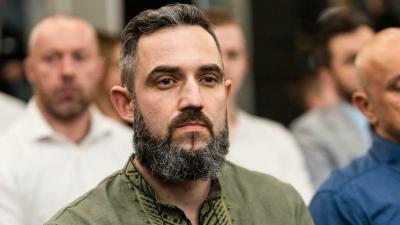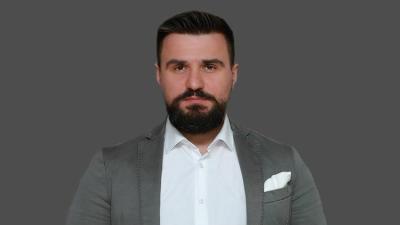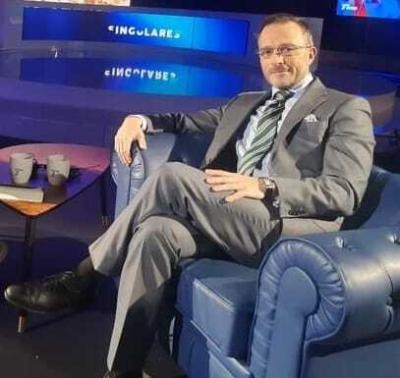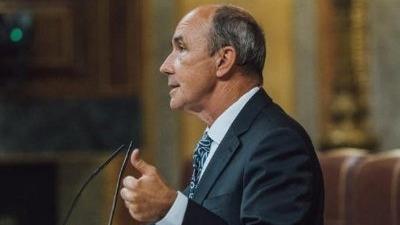A year ago, the Russian army launched an invasion of Ukraine under the name of "special military operation". Russia Today showed videos of surrendering Ukrainian soldiers, and most analysts and experts expected a Russian Blitzkrieg. The Russians had swiftly destroyed the entire Ukrainian air force and their long Panzer columns were advancing unstoppably on Kyiv. Everything was going according to the plan and former president Yanukovich came out of his comfortable retirement to fly to Minsk in anticipation of a change of power in Ukraine. However, something went wrong. The Russian assaults were not as well coordinated as befitted the world's second best army and complications soon set in. They included the failed Russian seizure of the Antonov airport, their failure to capture Odessa and the annihilation of a riot police unit on its way to the capital. But above all, the key factor was the Ukrainian resistance: the soldiers did not surrender as Russian propaganda claimed. The "liberated" opposed the "liberators", Ukrainian President Zelensky asked for ammunition and did not flee, and even the defunct Ukrainian air force was fighting Russian fighters in the skies above the capital. Despite their rapid advance, the Russians did not achieve any of the main objectives of their offensive. What was happening had been pointed out in December 2021 by then Major Denis Prokopenko, commander of the "Azov" regiment, in a report presented at a meeting of Ukrainian defence command. Prokopenko believed that the Russian deployment was probably a "big bluff", but that otherwise "the enemy will attack in vulnerable directions, which are not prepared for defence due to the absence of troops and engineering fortifications", allowing a rapid advance. However, in his opinion, despite this weakness in the Ukrainian defence, "we will fight to the end and it will not be, as the Russians imagine, an easy ride". He was right, the Ukrainians fought back stubbornly, the Blitzkrieg stalled and the Russians had to withdraw from Kyiv, Chernihiv and Sumy, leaving behind evidence of their war crimes against the civilian population. According to the Kremlin's defenders, in reality the major Russian offensive had been a diversionary manoeuvre to focus the attack on the Donbas and everything was going according to plan. Of course, defeats are also present in the military manuals.
Prokopenko and Azov would go on to fight another of the most important battles of the war with the defence of Mariupol, in which they faced far superior forces. After 82 days of siege, the Ukrainians surrendered on 20 May. Russia at last announced a victory, as Chechen soldiers posed in front of the conquered steelworks amid cries of "Allah is great". However, the harsh reality was that at the same time, the Ukrainian army was driving the Russians back with an offensive north of Kharkiv, the largest city in eastern Ukraine, and reached the Russian border. Despite the subsequent costly Russian successes in the Donbas, the arrival of Western weaponry would again slow the Russian offensive and change the initiative in the war. In November, the Ukrainians recaptured the city of Kherson, the only regional capital taken by Russia, and regained half of the territory lost since February. The onset of winter and mobilisation have paved the way to a new Russian offensive, more reminiscent of the First World War, which is crashing in Bajmut.
In this year of war, Russia has suffered a huge number of casualties among its soldiers and officers (as of 17 February, the minimum confirmed casualties were 1,820 officers, including 10 generals, 53 colonels and 123 lieutenant colonels), and has lost a large amount of military equipment, being forced to use old battle tanks such as the T-62 (the sanctions, although they have not suffocated the Russian economy as many had expected, have affected its arms production). And too many humiliations: the sinking of the Moskva, the flagship of the Black Sea fleet; the withdrawal from Snake Island, presented as a "goodwill gesture"; the destruction of an armoured battalion crossing the Siversky River; and, more recently, the destruction of a battalion of newly mobilised soldiers on New Year's Day.
Nor should we forget another of the major failures of this war: the expansion and strengthening of NATO. One of the Kremlin's main reasons for its invasion was to prevent NATO from moving closer to its borders by incorporating Ukraine. The war has motivated historically neutral countries, such as Finland and Sweden, to apply for NATO membership. On the other hand, NATO countries have significantly increased their military budgets and are providing military assistance to Ukraine, assistance that is proving decisive on the battlefield. If the aim of the war was to push NATO away from its borders, Russia has achieved the opposite.
Over the course of this year, the Ukrainian army has evolved from a post-Soviet-type army into a NATO army. Its soldiers are being trained in Western countries and its weaponry is far superior to that of its Russian enemies. This quality gap is widening, as there are fewer and fewer restrictions on the types of weapons delivered, be they tanks or aircraft, and the sheer weight of numbers does not seem sufficient to bring about a decisive change on the frontline. This is no longer the Second World War. During his state of the nation address on Tuesday, Vladimir Putin said that no one can defeat the Russian army on the battlefield. The Ukrainians seem determined to prove him wrong, and if this year has shown anything, it is that Russia cannot win this war.
Read also
Interview with Andrzej Podgurski – spokesman for the Polish Legion
Andrzej Podgurski is a Polish journalist and volunteer. A war correspondent since the beginning of the full-scale Russian invasion, he is the spokesman for the Polish Legion, an umbrella organization of humanitarian and military volunteers in Ukraine.
Álvaro Peñas
Oleksandr Shulga: “The West must understand that, unlike Putin, the Russians do have limits”
Our war is defensive and aims to drive out the invader and show the Russian regime and society that this war is pointless and will achieve nothing.
Álvaro Peñas
Rubén Herrero de Castro: “Russia wanted to behave like a superpower, but it is not”.
Interview with Rubén Herrero de Castro, PhD in Political Science and Sociology from the Complutense University of Madrid and Professor of International Relations at the Faculty of Political Science at the same university. He is a researcher at the Franklin Institute of the University of Alcalá de Henares and the Research Unit on Security and International Cooperation. Author of several books, including The Invented Reality.
Álvaro Peñas
Francisco José Contreras: “The renewal of the West is the historic task that the New Right must take on”
Francisco José Contreras is Professor of Philosophy of Law at the University of Seville and was a deputy for VOX during the last legislature (November 2019-July 2023).














Comments (0)